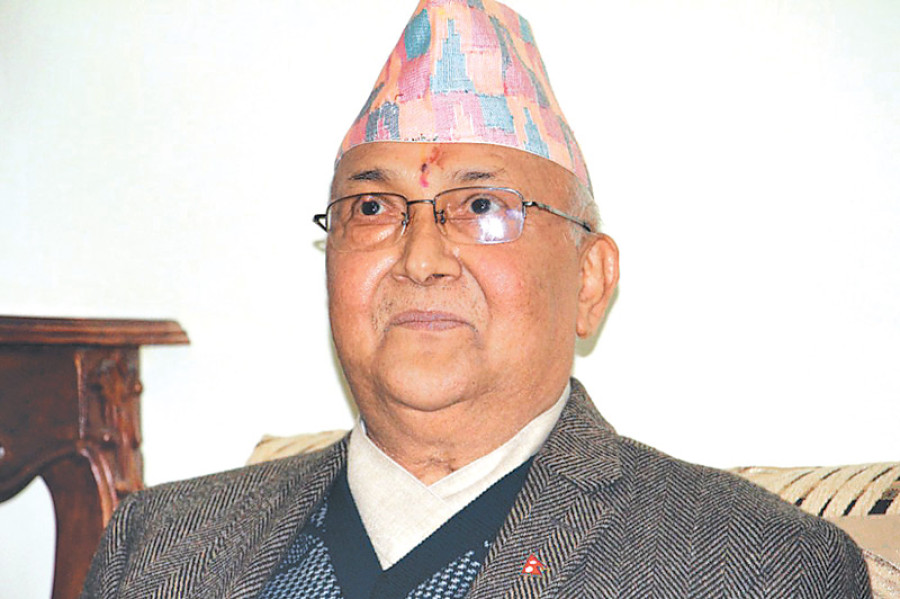Politics
Oli’s tendency to bulldoze decisions riles a section of ruling party leaders
Prime Minister KP Sharma Oli is showing authoritarian traits in a bid to consolidate power, party insiders say.
Tika R Pradhan
After a secretariat meeting of the ruling Nepal Communist Party picked names for governors for seven provinces on Monday, senior leader Madhav Kumar Nepal registered a note of dissent. This is the third time Nepal has registered his note of dissent against what he calls monopoly of party Co-chair KP Sharma Oli.
The Nepal faction had submitted a few names for new governors, but they were rejected. Instead, Oli picked four leaders from his faction for the vacant posts, while three leaders came from the former Maoist party. The names floated by Nepal were not even discussed in the meeting.
While the Oli administration’s sudden decision to remove governors appointed by the Sher Bahadur Deuba has been criticised, within the ruling party Oli is facing criticism for being biased and failing to take forward all the factions together.
“In general, it is expected that an ailing leader takes decisions acceptable to all. But that did not happen,” said Mani Thapa, a standing committee member. “This incident shows that Oli is not going to step back despite his poor health condition. He is continuously in a bid to consolidate power.”
Oli, who had his kidney transplant 12 years ago, underwent dialysis last week twice in 24 hours. Doctors are yet to decide his course of treatment—regular dialysis or another transplant.
The sudden deterioration in his health condition had prompted many to think that Oli would now work on power-sharing within the party in a balanced way so that the party functions in a collective manner, according to leaders.
However, Ghanashyam Bhusal, a standing committee member close to Nepal, said Oli has once again exhibited his authoritarian tendencies.
“This is an example of how people with an authoritarian mindset are not affected by changes in their physical health,” Bhusal told the Post. “His tendency to centralise power has continued. Democracy demands procedure and objective reasons while taking decisions.”
Even almost one and a half years after announcing the merger, the Nepal Communist Party is yet to complete the unification process. A crucial committee in a communist party for taking political decisions, the politburo, is yet to be formed. The party’s standing committee has sat just twice, but none of the meetings has taken any crucial decision. The party’s central committee, the most powerful body, has not held even a single meeting.
All these indicate the party is largely functioning on how one particular leader wants, party insiders say.
While picking governors, Oli, however, has tried to make a semblance of mending fences with his Co-chair Pushpa Kamal Dahal, who has been increasingly unhappy for not getting concrete responsibility in the party.
Analysts say Oli wanted to show that he was capable of taking bold decisions—despite his health. On top of that, he also wants to manage his leaders in the party, they say.
“Oli is in a hurry now due to his ill health. He wants to help those who had helped him in the past,” said Jhalak Subedi, a political commentator. “This is how he wants to consolidate power by weakening his opponents.”




 10.12°C Kathmandu
10.12°C Kathmandu















